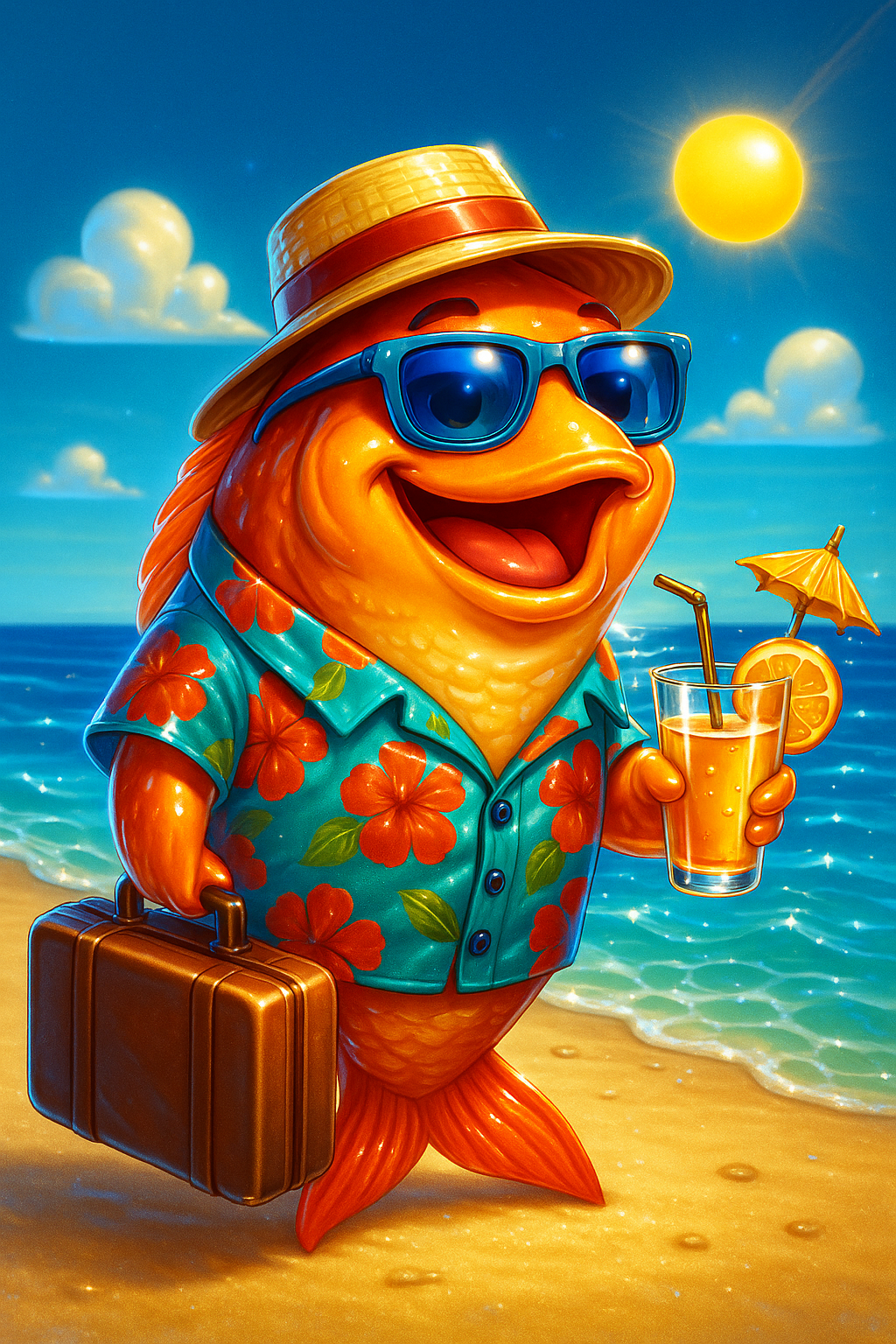Who Takes Care of Your Aquariums on Vacation?
🐠 Who Takes Care of Your Aquariums on Vacation?
Even when you’re away, your aquarium needs care. With the right prep and a solid plan, you can enjoy your vacation stress-free knowing your fish are safe.
👨👩👧 Family or Friends
- ✅ Easiest option – ask someone you trust.
- 🍽️ Pre-portion meals into small pill boxes, baggies, or labeled cups to prevent overfeeding.
- 📝 Write clear, step-by-step instructions (feeding, lights, what NOT to do).
- 🎥 Record a short video walkthrough of your daily routine for them.
- 📱 Stay available for calls or texts in case of emergencies.
🐾 Professional Aquarium or Pet Sitters
- 👩🔧 Experienced sitters can handle feeding, water testing, topping off, dosing, and equipment checks.
- 💵 More reliable but adds cost.
- 🔍 Find through local fish stores, aquarium clubs, or online groups.
- 🐟 Essential for:
- Saltwater reef tanks 🪸
- Planted CO₂ systems 🌿
- Large or multiple aquariums
- Rare or expensive fish
🤖 Automatic Feeders
- 🕒 Dispense food automatically once or multiple times daily.
- 🐟 Great for 1–2 weeks, especially for community freshwater tanks.
- 🚫 Only works with dry food (flakes, pellets, wafers).
- ⚠️ Test it a few days before leaving to avoid malfunctions.
- 🔄 Combine with a sitter visit if you’re gone more than 1 week.
🏠 Boarding Services
- 📦 Some aquarium shops or breeders may board fish.
- 🚚 Useful for rare or sensitive species.
- ⚠️ Moving fish can cause stress or illness—use only if necessary.
- 🛠️ Safer for smaller tanks/fish than full setups.
🧰 Vacation Prep Checklist
🧽 Cleaning & Maintenance
- 💧 Do a partial water change 2–3 days before leaving (not right before, to avoid stress).
- 🔬 Test ammonia, nitrite, nitrate, pH.
- 🧽 Clean filters, glass, and pre-rinse sponges.
- 🌡️ Check heaters and timers for lights.
- 🌿 Trim live plants and remove dying leaves.
- 🚪 Secure lids tightly (jumpers are more common when feeding routines change).
🍽️ Feeding Plans
- Short trips (2–3 days): Fish often don’t need feeding. Most healthy fish can go several days without food.
- Medium trips (1 week): Use an automatic feeder or give helper pre-portioned meals.
- Long trips (2+ weeks): A sitter or professional is best. Consider training them in advance.
🐟 Freshwater vs. Saltwater Tanks
- Freshwater community tanks: Often easiest to maintain with automatic feeders.
- Planted tanks: May need CO₂ monitoring and trimming.
- Saltwater/reef tanks: Require dosing (calcium, alkalinity, magnesium), checking salinity, and watching coral health → sitter strongly recommended.
🚨 Emergency Plan Checklist
Leave this with your caretaker, posted near the aquarium:
- ⚡ Power Outage:
- Don’t feed fish.
- If longer than 6–8 hrs, use battery-powered air pumps.
- Wrap tank in blankets to hold temperature.
- 💧 Filter Stops Running:
- Call you first.
- If safe, rinse filter media in tank water, never tap.
- Restart filter and check water flow.
- 🌡️ Heater Issues:
- Too hot → Unplug heater, float ice bottles.
- Too cold → Raise room temp, wrap tank in blankets.
- 🐟 Sick or Dead Fish:
- Remove and freeze in bag until you return.
- Do not medicate tank unless instructed.
- 🚱 Water Leak:
- Unplug equipment.
- Place towels/buckets.
- Call immediately.
- 📞 Emergency Contacts:
- Your phone
- Local fish store (hours included)
- Trusted aquarium friend/hobbyist
- Emergency vet (for rare species)
⏳ Vacation Length & Best Care Options
- 2–3 days: No feeding needed (healthy fish can go without).
- Up to 1 week: Automatic feeder OR helper with instructions.
- 2–3 weeks: Helper visits at least every 2–3 days, or hire a sitter.
- 1 month+: Professional care required; consider boarding.

Powered by Lightspeed
Display prices in:USD